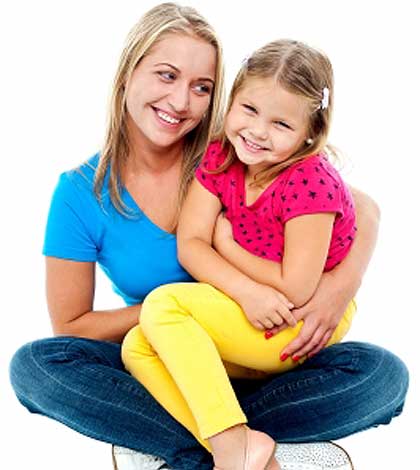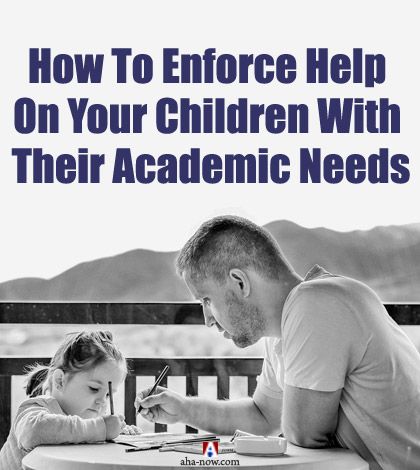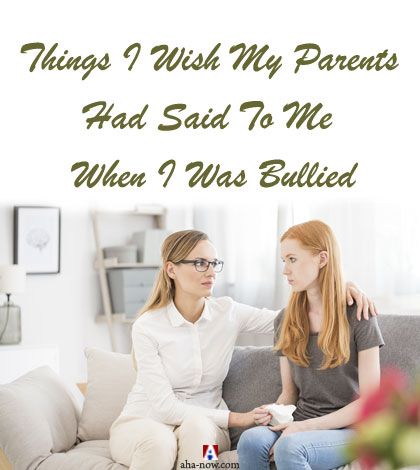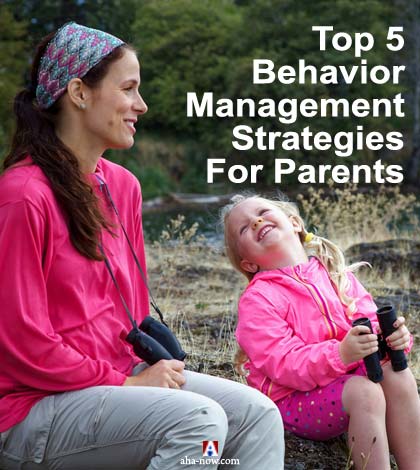How to Deal With Children When They Get Angry

Do you get angry? Just like you, even children get angry, and that’s very normal. In fact, all kids should get angry because it’s healthy to feel your feelings. But don’t let those feelings overwhelm you!
In an earlier post I’d discussed in detail about why children get angry that had all the reasons included within. Hope you head over and read that post too.
If you can help your children identify, explore, and express their emotional state, it would help them ease their angry outbursts.
When a child gets angry, you need to fix the behavior, not the feeling. Most parents try to deal with the child’s emotion first because they feel that’s what’s causing the bad behavior.
As a parent, you need to help your child solve the problem by knowing from where his or her feelings originate – the thinking that sparks the emotion. Focus on what triggers the whole problem.
“Anyone can become angry. That is easy. But to be angry with the right person, to the right degree, at the right time, for the right purpose and in the right way… that is not easy.” ~ Aristotle.
What Should Parents Do When Kids Get Angry
Parents should consider the anger of their children like an alarm, and not ignore it. They need to identify the reasons that cause the anger.
The best way is to clear the picture in your children’s mind by helping them remove the misconceptions, and find ways to lessen their anger.
You shouldn’t try to keep your child from getting angry, because anger is a natural human emotion. So, let them know that it’s alright to get mad at times.
If children are stopped from getting angry, it will make them into unhealthy adults who don’t know how to handle and accept their feelings.
They will suffer from guilt and won’t be able to make out what hurt them.
Remember, it could be that your child’s anger is unjustified, deliberate, or a learned behavior from friends or peers.
But don’t jump to conclusions, nor forget that such behavior could occur due to biological and other reasons too.
However, your child needs to know how to handle the anger appropriately, because at times it could turn out to be quite violent.
Also, remember that your child is a person with real emotions just like you, so handle him or her with care.
Children need to be told that aggression in the form of hurting, pushing, hitting, yelling, or throwing is not right. Instead, tell them the right way to deal with their anger.
A lot also depends on how parents express their anger and how they teach their children to deal with the anger.
If you are a parent, you may not know what to do. Each child is different, and so is the way to deal with kids when they get angry.
When angry feelings aren’t resolved, it can lead to health, stress, and behavioral problems. There may be a possibility of it becoming a part of their nature.
Parents need to create quality time with their family where there is enough time to discuss and share feelings, so that they can deal with the situations like when their kids get angry.
It is our responsibility as parents to teach the children the limits, and the right ways of expressing anger.
However, if things don’t go as expected then you should get into the damage control mode, rather than reacting outrageously to create more damage.
“When my kids become wild and unruly, I use a nice, safe playpen. When they’re finished, I climb out.” ~ Erma Bombeck
What Not To Do When Your Children Get Angry
Being parents, it’s not easy to keep calm when your kids get angry and are ready to throw tantrums. However, there are a few things you can do to deal with angry children.
- Never challenge or yell at your children when they are angry or don’t listen to you. This only makes you lose control. Instead, stay calm, and come back to the issue later.
- Never get physical with your children when they are angry. Instead, pay attention to how you react when they get angry. Remember, they are learning from your behavior all the time!
- Don’t try and reason with children when they are angry or in the middle of a tantrum or outburst. It surely isn’t easy, but possible!
- Don’t lose your patience and take things personally. Instead, work with your children to make them understand the real reasons of their anger.
- Handle younger kids differently than the older ones. Never freeze up or isolate yourself when your children get angry. I know this is tough, but it never really works! Instead, reach out and talk out things with them.
- Give your children consequences for their bad behavior, but not for the anger. Remember; don’t make the punishments harsh ones. After all, you are teaching your kids how to manage their anger.
There are many reasons why kids get angry. Sometimes they are frustrated, irritated, can’t figure out something, or get upset when another child takes something that belongs to them.
Sometimes they get angry when they are taunted by peers, or if they are anxious, afraid, hurt, feel isolated or lonely, and if things don’t go their way. Or, for no reason at all at times!
Whatever may be the reason, as parents we need to know how to deal with children when they get angry. We need to help them find ways to express their anger in a positive way.
Here’s a video that tells as how love can make a difference to children who get angry. I’m sure you’ll like it.
[youtube id=8Ts-7C_H6J8 width=”620″ height=”360″]
Dr. Craig Childress ~ How to Help a Child Who Is Always Angry ~ YouTube Video
“When anger arises, think of the consequences.” ~ Confucius
Ways to Help Your Children Learn to Express Anger Positively
Help your children identify their triggers when they are calm, and try finding out the root cause of the problem.
Some anger busters for children when they get angry are:
1. Be a role model – As a parent if you are angry, express what you would do or behave so that your children follow you.
You could say, “Dad’s feeling very angry right now, so I want to be alone for some time to get back to normal, and get self-control.”
2. Understand their pain – Try to be sympathetic and connect with them when children get angry. Talk about a time when you were a child and how you got angry, and how your parents dealt with the situation.
3. Be respectful – Don’t get physical or call names when you are angry. And don’t encourage your children to do the same. Try keeping calm in all situations.
4. Remain positive – Instead of challenging them and saying, “Don’t you throw your toys,” say, “Once you put the toys on the room, we can go out and have ice cream.”
Show them the way you want them to deal with the anger.
5. Make them understand how to express their anger – Give them words they can use, like, “I know you are sad, frustrated, or disappointed. But everything will be okay.”
Let them have time to deal with their anger.
6. Divert their energy – You need to redirect their energy when kids get angry.
If they can’t get away from a class, perhaps they can close their eyes and do some deep breathing – show them more of such ways to deal with their anger.
Explain children the positive ways like painting, jumping, skipping, running, swimming, or anything that keeps their minds away from anger.
7. Give time – You need to give your child time to cool-off by going for a walk, reading a book together, or even alone.
Also, give your children the option for venting their feelings. Tell them that they can always come to you, or share their feelings with their best friend, or a special person in their life.
Later discuss calmly what made your child angry and guide them for the next time.
I know your might say that most of what I mentioned above is easier said than done.
But once children understand that their anger is baseless and not valid and that it would subside gradually – they are able to cope with things.
Remember, never forget to pat their backs when their behavior is good, which most of us forget doing – isn’t it?
Also, don’t forget to love your children, more so when they are angry. They will listen to you more when they see you are loving and friendly, and really intend to help them.
“Accept the children the way we accept trees—with gratitude, because they are a blessing—but do not have expectations or desires. You don’t expect trees to change, you love them as they are.” ~ Isabel Allende
Over to you –
Remember the time when you were a child and got angry. How did you deal with your anger? As a parent, what ways would you suggest to deal with children who get angry? Share in the comments.
Photo Credit: FreeDigitalPhotos











Hi Harleena!
Nice useful post for the parents.
I am using few tactics which you specified here to handle my kid. I never get anger on my kid Instead, I’ll try to find it out the reason for it. This is best way to handle kids. Thanks for sharing it.
Regards,
Baibhav
It is very unfortunate that most of the times, parents fail to understand the fact that children do have the right to get angry too. Scolding,cursing or physically abusing the children is not the solution. We should be sensitive and matured enough to understand their little minds. In this post you have covered this issue very nicely. Hope the message reaches far and wide.
Harleena, what a wonderful discussion and such an important subject.
As we often see here in our organization, unaddressed, squelched, and dismissed anger can result in ill health and dangerous behavior. Imagine if each of the young people responsible for school shootings were taught how to manage and release their anger effectively and safely…At YEMAYA YFS we run a group for youth struggling with anger issues. Oh the changes that are made once it is expressed and we can begin to work on the hurt underneath.Thank you for your exploration of such a timely issue.
Hi Harleena,
Children do get angry just like adults and I agree with the points in your article. As parents we can role model appropriate ways to deal with our anger, so that children can see this is an emotion that we all have, There are ways to express our anger that do not harm others and allow us to vent our feelings and work through them.
Great article.
Hi Cathy,
Yes indeed, kids do get angry just like us and that’s very normal too. As parents we need to help and guide our children by teaching them ways to cope with anger. And because kids learn best by seeing their parents – role modelling is where it all starts from.
I agree, the way we express our anger and how we maintain our cool even when we are angry is what our kids will notice, so we better be careful there. 🙂
Thanks for stopping by and sharing your views 🙂
Harleena – This article just proves how hard parenting is 🙂
Having an angry kid on your hand is like holding hot coal, it is never easy and the more younger they are, it is even more difficult.
The reason being that the kids just do not have the sense to listen and understand during those angry times, it is very unnerving and tests the patience of parents. Whoever deals with it with calmness and follows one of the ways you have mentioned above, really knows what parenting is all about 🙂
Thanks for a wonderful article, to which we can all relate to.
Hi Praveen,
Sorry for the late reply, I seemed to have somehow missed your comment, though am glad I made it 🙂
You are so right there – loved your example of hot coal, and yes, they are indeed just like that- hot-tempered. I guess when they are younger, it’s tough to reason with them or explain them things.
When children get angry, nothing really can calm them down, and while it’s quite similar to a few adults too, but with children you really can’t explain things or make them understand all that easily. But being parents, we need to be patient and keep a hold on losing our temper, or else both, parents and children would be bursting into bouts of temper all the time. Not to mention that kids learn by what they see their parents do. If they see us calm at such time, they would follow that up and be calmer when they are angry, or learn to control such temper tantrums.
Thanks for stopping by and contributing to the post. 🙂
Harleena,
I think anger is one of the most difficult things to deal with in children.
Sometimes they are angry for reasons even they do not know. Then dealing with the anger involves first figuring out what is causing the anger.
I like your ways of helping children express their anger positively. They are really good and will be really helpful to anyone dealing with an angry child.
Dee Ann Rice
Hi Dee Ann,
I’m glad you like the ways of dealing with children who get angry – positive expression of anger is so important.
And, you’re right that anger is a complex emotion, and children are not able to understand how to go about it.
It is here that we as adults need to step in as guides and teachers and help them spot the cause and learn to react appropriately. But we can make the matters worse if we too take the plunge ourselves into the angry waters!
Thanks for stopping by and adding your bit to the discussion. 🙂
Those are great tips Harleena. My child used to get angry often during the terrible twos stage. I know some of it has to do with their limited language skills at that age and if they are tired. I usually sent her to her room or quite place to calm down.
Hi Ashley,
I’m glad you like the tips. Oh yes, you’re right that infants do get irritated and frustrated when they’re not understood or their demands are not met. So, poor communication is the culprit at any age, and sometimes does lead to anger!
Thanks for stopping by and sharing your views. 🙂
Hello Harleena Singh,
You wrote another awesome post to understand children’s anger & take remedy according to need. I agree with your point. No one can tell there is any solution if you show anger with others. Yes anger is our human feelings like happiness, sad or smile. But most of time anger makes the situation worse.
Children also sometime get angry. At that time we must need to understand their psychology & try to limit their anger according to need. I think its a good idea to show patience & just wait when children’s anger decreases. Then parents can talk with them about the matter.
Anyway thanks for best resourceful tips for all readers.
Hi Ahsan,
I’m glad you liked the post. You’re right, anger is a negative feeling. But this energy should either be released or converted into positive energy, else it may cause damage and hurt the person in many ways.
You got it right – patience is the key to handle kids when they get angry. And, of course, communication and dialog are a must instead of orders and punishments.
Thanks for sharing your views with everybody. 🙂
Harleena,
What a wonderful subject to bring up. Too many parents get stuck on what to do when their child gets angry.
The tips you gave are right on point!
I find that keeping a calm tone and not giving in to the “angry child” is very effective if you can communicate with them. Depends on the level of anger.
The best advice I found here is being a role model. If a parent has an anger problem….they NEED to get anger management for the sake of their child. Role modeling works best I think because it is showing the child how you deal with anger. Here is where actions speak louder than words.
I also like the point of time. A parent needs to know that when a child is displaying anger, they may need some “time out” and then when all is simmered down, talk about the problem.
Thanks again for an awesome post!
Donna
Hi Donna,
I’m so glad you like the subject of the post. I agree that today’s parents need such guidance more than ever, because their job has become more difficult and challenging.
I found that when your children reply back to you after you get angry to them, or when you get angry if they’re already angry and out of control, either ways there’s a deadlock and there can’t be a solution to the problem.
Parents need to get responsible and start behaving so, at least in front of their kids. I agree that role modeling is the best way to teach your child how to control anger as they learn to be calm from you.
Everything gets melted or roasted in the heat of the moment, so it’s logical to take a break to let it cool down and communication become more effective thereafter.
Thank you for stopping by and taking part in this discussion to help new parents. 🙂
This was a really helpful post Harleena.
Nothing was new but I think all parents need a reminder once in a while.
One big mistake I’ve been doing which is on your list of things not to do is “try to reason” when my kids are angry. It never works but I still do it. Sigh… I’ve also found that taking a step back and letting things pass for a few hours to a day will give me some perspective and allow me to deal with things in a more calm way.
Hi Annie,
You’re quite right that I haven’t really invented any news concept here, but we do often forget these and need to be reminded.
I too sometimes do reason with my kids when they get on my nerve, I loose my cool, or when I believe they’re taking advantage of my being good. But it’s always better to follow the strategy which you mention here as one of the options.
Thanks for stopping by and sharing your experiences. 🙂
Hi Harleena,
This is right time to read this post. I have a 3 year old baby and looking forward to 2 more children 😉 As young parents, this is wonderful information. I’ll get this over to my wife. Thanks for sharing 😉
Hi Enstine,
I’m glad you find the information useful. The early you learn the tips and tricks of parenting, the better is the relationship with your children. All the best to you and your wife!
Thanks for stopping by. 🙂
Hi Harleena,
Now you know I don’t have kids and all of my nieces and nephews are almost grown. The last one graduates from high school this May.
I often times tell myself that I guess I’m blessed God didn’t give me children because the issues some parents have today I can’t even imagine. I would only hope that I would have been a good parent but I remember being a kid and getting pretty angry myself.
I think what I hated the most is my Mom always just giving me the answer “because I said so”. Never explaining why the rules were like they were. My mother use to just say as long as you live under my roof you live by my rules.
I know there is so much more going on in the world today and with parents working more and not being there for their kids I can only imagine some of the things parents have to deal with today. One thing I can say for sure is that if they’re looking for good advice, they’ll definitely find it here.
~Adrienne
Hi Adrienne,
I agree that parenting has its challenges and is not an easy job to do. Having said that, it is also true that parenting is rewarding too, if all goes well – so we’re back to square one!
I guess we all demonstrated angry behavior when we were young, as that is the characteristic of that age, and the play of the hormones. So, having passed through that stage, a parent should capitalize on that experience to control their kids when they get angry.
You brought to light one behavior that most parents do is not to explain things or rules to their children, yet expect them to follow, what are more like orders. This surely creates a rebellion in the child – who doesn’t like to be suppressed and ordered upon.
You’re right that present times are more difficult and challenging for parents when they try to bring in home double income and aspire to raise their standards of living, and amidst all this they lose the connection with their children.
Yes, I agree there’s a lot of good advice to be found here especially when people like you generously impart their experience and wisdom. Thanks for stopping by and contributing to the post! 🙂
This is a very timely and useful post for parents.I agree that the most important thing we can do as parents is to role model positive ways to deal with anger. Thanks for sharing these nice tips…..
Welcome to the blog, Prajith!
I’m glad you find the post helpful. You’re right, a parent needs to be a role-model and adopt behaviors that he or she would like the children to follow.
Thanks for stopping by. 🙂
Happy weekend Harleena,
You have just covered so much here, and i quite agree with all the tips. It goes to show that you’re really a good mother.
I agree with you that parents should always try to find out what cause their children’s anger and where the anger originated from instead of trying to quench the emotion.
The first step towards solving any problem is to first of all discover it, if you don’t know the cause of an issue, there is no way you can solve it.
A very interesting post as always Harleena.
Thanks for sharing and do enjoy your weekend.
Hi Theodore,
I’m glad you like the post. We all do become good parents by learning with experience.
We need to understand that anger is an effect, and that every effect has a cause. And, believe that if there’s a problem, then there’s a solution!
You’ve so rightly mentioned that you cannot remove the effect without knowing and dealing with the cause – the cause of anger in the kids.
Thanks for stopping by and providing value to the post. 🙂
Hi Harleena,
Oh I’m so glad those times are behind me and my children are grown. By raising three boys I had lots of exposure to their anger and I sure didn’t handle it like you advise above most of the time. (Where where you when I needed you?)
Now, in hindsight, which is always 20/20 I am a lot wiser of course. That’s why grandparents treat/raise their grandkids in a much different way than they did their children growing up.
You are giving excellent advise above and I’m sure it will help a lot of parents. Thanks for sharing your wisdom!
Ilka
Hi Ilka,
Oh dear, I too am in the learning process while parenting my kids. I’ve made my share of mistakes and I ain’t perfect too.
It’s a relief when kids have grown, isn’t it? Well, for some the anger issues continue till late and it becomes more difficult when young adults become angry and irresponsible.
Yes, you’re right. Grandparents do value life, and are wise enough with experience to handle the anger of children. One thing they do is react less and respond more!
I’m glad you like the post and I thank you for contributing your thoughts. 🙂
Hello ma’am,
I’m not a parent but I totally agree with you, getting angry is not a problem the issue is how we deal with our feelings. Handling kids when they get angry is a sign of good parenting. The mind of kids is very sensitive it is really important to control them when they are angry. With love and patience we can handle the situation. The points you mentioned we surely help parents to tackle their children. I really liked your article.
Welcome to the blog, Dheeraj!
I’m glad you agree with the post. We need to accept that getting angry is quite natural and a normal behavior. Especially, kids and teenagers really have a hard time controlling their emotions. As you rightly point out; love, patience, and understanding are surely the key for parents to handle the situation.
Thanks for stopping by and contributing to the post. 🙂
A perfect thinking to deal with kids.I am not a married guy,but surely these tips will help me in future. 🙂 😀
Hi Aman,
I do hope these tips would help you when you get married and have your own kids. I guess you can keep collecting such posts for your future and get better with parenting skills by the time you become one. 🙂
Thanks for stopping by. 🙂
Very interesting.
I agree that the most important thing we can do as parents is to role model positive ways to deal with anger. That’s what it’s all about. Thanks for sharing 😉
Hi Linda – nice to see you back after a long time 🙂
Glad you found the post an interesting one. Being parents, the least we can do is to show our kids how they can deal with their anger by being their role models because they will do exactly what we will.
Thanks for stopping by. 🙂
Hi Ma’am,
Really Angryness Changes Him/Her to a beast.The thinking of Our brain reaches to zero. We will be unaware of what we are doing in the state of anger. Especially children need to treated and handled very well when they get angry!!
Thanks For Sharing ma’am !! I Will follow the tips to control my anger!!
Hi Srikanth,
Yes, when we get angry we are close to one, though a lot depends on the kind of person we are or how angry we get too. Because some people show their anger by just shutting themselves off, while others will become like the beast you mention.
An angry person loses the power to think rationally, and at such times, even the thoughts are full of anger and resentment – aren’t they? Kids need to be handled with care at all times, more so when they are angry or upset as these sensitive emotions can leave scars on their minds that we come to know of years later. Ah…feel free to use these tips if you get angry too 🙂
Thanks for stopping by. 🙂
Hi Harleena,
This post has a different look, and I thought something was wrong at first, but I’m here for the third time, so it must be right 🙂
I love the fact that you specify that the anger is not the problem, but rather the reaction to the problem. Such feelings as anger, sadness, or joy usually are the cause not the effect. So, yes, it’s bad to prevent a child to feel their emotions.
As I am writing this, I can think of one adult that I know who was prevented to”feel” a lot of things when he was a child and now in his early 50’s he is still struggling a great deal with this.So, again a serious issue that we need to grasp as parents to make sure that we raise mentally and emotionally healthy children.Thanks for this wonderful topic.
Hi Sylviane,
I’m not quite sure what you meant by the look of the post – was it some problem with the post not loading correctly or something else, though am glad you made it finally 🙂
Oh yes – anger is part of all of us just like any other emotion or feeling, and isn’t the problem. Instead, the way we parents react to an angry child is what aggravates things. Yes, sometimes it’s tough to control ourselves, but if we don’t it would just make matters worse.
I feel sorry for the person you mentioned, and when we aren’t allowed to feel these natural feelings or we ourselves suppress or repress them because we are made to believe they aren’t to be shown, it will result in major problems in our adult life. I guess it all does come down to parenting and raising overall healthy kids – isn’t it?
Thanks for stopping by and sharing your experiences. 🙂
Very good article Harleena. We forget that children feel the same way adults do because they are human.
Invalidating a child’s feelings could cause a poor reaction. The gentleman in the video speaks on this very well.
I believe you should be patient enough to discover why the child is angry and help him/her work through their feelings.
It will be better for all in the future.
Hi Michael,
Glad you liked the article 🙂
Absolutely! Just like us, even kids are humans and feel the very same feelings we do, and anger is very much a part of it all. Nice to know you saw the video, and the Dr. spoke a lot of sense – something we parents need to understand.
If we are able to give our kids our attention and time, we can easily know them well enough to make out the reason for their anger, and just as you mentioned, help them find ways to deal with it, which is most important. This WILL result in happier and healthier adults.
Thanks for stopping by and sharing your views.:)
What a wonderful article, Harleena.
You’re so right, we shouldn’t ignore the signs of anger from our children. In some cases they may have legitimate reasons to be angry, such as in the case of bullying.
I also like that you said what not to do. That is every bit as important as knowing what to do. When we react negatively to our child’s anger, then we are only making the situation worse.
The greatest gift we can give to our children is the gift of understanding. You have helped parents give that gift to their children, Harleena.
Hi Carolyn,
Glad you liked the article 🙂
Ignoring the emotions and feelings of our kids is the worst things parents can do, and anger is such an emotion that needs to be worked
on and channelized in the right direction or else it affects the child in the long run too. I agree, in most cases kids have a reason why they get angry, which we as parents need to find out and try removing to the best of our abilities.
Oh yes…when I was writing what we shouldn’t do, I was trying to pen down my thoughts of what I don’t do or what I need to change for myself as well – so writing such posts are reminders for me too – to get better! Getting angry with an already angry child leads to nowhere, instead it just creates problems for both, the parent and the child.
You are so right there Carolyn. The greatest and most valuable gift parents can gift their kids is their time, something that the kids will value lifelong. I just hope more parents would realize this and make amends if they aren’t able to spend time with them. It’s never to late 🙂
Thanks for stopping by. Always a pleasure to have you over. 🙂
Excellent article on how to deal with children. I as a parent have to deal with my own children and sometimes it extremely hard. But as you say, never hit them as it will have a negative impact on them and you as well. In fact, the situation can go the opposite way.
Also the use of positive reinforcement is important, a little praise can a go a long way.
Hi Shalu,
Glad you liked the post and could relate to it 🙂
You are not alone as most parents find it tough to deal with kids when they get angry. But yes, hitting them is no solution and would only make things worse for you and for your child. Sometimes such kids face many other issues as adults, as it leaves a deep impact on them.
Positive affirmations and reinforcements, and a little bit of pepping up goes a long way to make your child feel good about herself/himself, again, which most parents forget to do.
Thanks for stopping by. 🙂
I agree completely with you Harleena. Children are like walking bags of hormones a bit like pregnant women, happy one minute and then angry the next. The best way to deal with them is by being cool, calm and collective way.
Oh yes they are Shalu! 🙂
You really don’t know what they are going to come up with next, or what might just change their mood! We as parents need to keep our calm and know how to deal with them.
Thanks once again. 🙂
Nice useful post for the parents Harleena!
I new few tactics which you specified here and doing the same to handle my kid. I never get anger on her, whenever she get angry. Instead, I’ll try to find it out the reason for it and will insist how health is affected by anger.
Will follow the unknown and missed tips to deal the anger children.
Welcome to the blog Nirmala – nice to have you over. 🙂
Glad you found the post useful and are following some of the things mentioned, which means I am on the right track after all 🙂 You are right, getting angry only affects our health, and does no good. In fact, even when the child gets angry – the anger affects the child in more ways than one, and you would be surprised to know that even young kids suffer from blood pressure problems if they get all worked-up.
Thanks for stopping by. 🙂
Great subject to talk about Harleena. I remember your other great post on childrens anger.
I remember when I was a kid and my older brother had trouble with anger. My mother saw this and she was very good at teaching him to control it. She allowed him to be anger, but taught him to use it constructive and turn something positive out of the anger.
Anger actural is a good emotion when we teach our children to use it in a positive way.
You are right if we react to their anger with our anger it makes things worse and the child does not learn anything positive out of it.
many times when mine kids were small I would try to divert there anger.
I do love the way you have explained the anger and your guide lines are very easy for any parent to understand and put into practice.
Thank you again for your wisdom.
Debbie
Hi Debbie,
Glad you liked and could relate to the subject. 🙂
Your mom surely knew how to deal with your brother when he got angry – I like that! Turning something positive out of anger, that would be wonderful if parents can channelize their kids anger to something constructive and positive. They must be things to keep the mind away like clearing the room, or gardening, or playing some game etc I guess – so that the mind remains diverted I guess. Yes, that does help.
Yes, our anger accompanied with our child’s anger – leads to nowhere, instead, it might aggravate the situation further within the family and lead to problems. Ah…my guidelines are simple, tried, and tested, accompanied with a little more information I found online. Just hope it helps parents who are wanting to deal with their children’s anger problems.
Thanks for stopping by and sharing your experiences with us. 🙂
Hi Harleena!!
I think parents sometimes have a tendency to renegotiate with their child in these situations. Often, they’re having a hard time managing their own emotions and so they don’t know how to coach their child properly in that moment. But remember, if you give in and renegotiate, even every once in a while, you’re teaching your child that it’s worth it to act out.
Instead, let them calm down and try to coach them to use their problem-solving skills later. In my opinion, once you start doing that, you’re not passive. You are making a conscious choice to not get into an argument. You’re saying, “I’m not going to renegotiate; I’m going to be calm.” Although it may not seem like it on the surface, all of those choices are actions—you are making a choice not to give in.
Welcome to the blog Suzy!
Yes, some parents do renegotiate as you said – because they themselves have a hard time knowing their own feelings and emotions, so how would they handle their child’s. But that’s not a permanent solution and it often leads to the child getting used to such negotiations and knowing that nothing much is going to come of them acting out – so they keep doing what they shouldn’t.
Part of being a better parent is to keep learning to make yourself better, and yes, teach your kids how to handle their problems instead of negotiating with them or running away from the problem in hand. However, talking or teaching them should only be once the rough waters have passed and they are cool and calm. This helps both, the parent and child to think ahead with a positive mindset with an aim to work for a combined solution.
Thanks for stopping by. 🙂
I am completely agree with you!!
Thanks once again Suzy 🙂
My point in relating to this post, is you can read all you want about how to teach your children what is right an what is wrong, but in the heat of the battle when your wits are at their end, you’re going to revert to just being yourself and saying what you think on a gut level. This is risky, of course, and potentially damaging if it gets out of hand. Yet when your relationship with your child is based on a solid attachment, letting yourself go will most often work to your advantage. Sometimes sincerity is the only thing that will penetrate even the toughest brick wall that stubborn children set up.
Hi Evan,
I agree to quite an extent that it’s not easy to keep your cool when your kids get angry or throw tantrums right in-front of your eyes, that’s what I’ve mentioned many times within the post that it’s easier said than done. However, we as parents need to make that change in ourselves first, before expecting any kind of change from our kids – isn’t it?
We want our children to be good and obedient, or not get angry, and we ourselves do just the opposite, so what lessons do the children take back from us? They will follow what they see and do the very same – now, and when they have kids of their own. Yes, if there’s deep understanding between your child and you, as you mentioned, they do understand your temper and likewise you might know the reason for their anger too. But this works only for older kids or teens perhaps – not for the young ones. I feel they are far too small to understand why mom or dad are getting angry, instead, they often get terrified and turn into their own shells, and this affects them much later in life too.
Thanks for stopping by and sharing your views. 🙂
Hi Di,
Great post as always!
Since your last post, I’ve changed to the extent my yelling is concerned.I’m giving a proper hearing to the issues or delving deep to know the reasons for their wild mood swings.
The “role model” point which you have mentioned really stand out and truly deserve to be at the top. My daughter is entirely being modelled on my husband who doesn’t shout nor yell, but for the reasons mentioned above she has got some varied mood swings and that time my husband point out, since she is spending quality time with me therefore she is undergoing the change in behaviour, not true though(I’d never accept this).
I really loved your #4 which really tell us and spread the message of being positive. Giving time to the children really help them to cool for the better and at times they themselves feel that they should have behaved in the better way.
Parenting at times really takes a toll but again it is a great experience to learn and share.
Now when I was young, I would love to throw tantrums, but was more serious and really well behaved, but yes at times use to get angry but then again my parents did a commendable job of listening to my issues and remaining patient all the time.
Thanks Di for the great share.
Sapna
Hi Sapna,
Glad you liked the post and could relate to it 🙂
Nice to know that these posts are helping you in some ways, and yes, yelling really leads to nothing more than raising your own blood pressure. I know because there was a time I was like that too when my kids were young. I guess the work pressure and other stresses of life makes us do that, though that’s no excuse and we have to control ourselves no matter what.
Ah…so it’s your husband who’s modelling Divya’s and he might be her role model too – that’s wonderful! I guess the father-daughter connection is such, and I’ve also seen fathers do have a soft corner for their daughters as compared to their sons – isn’t it? My husband is another one like that who rarely shouts, though he has his own way of conveying what he wants to – to the kids.
I think you meant to say that because she is not spending quality time with you, so she has those varied mood swings, as that’s what your husband feels- and yes sometimes kids do that mainly to seek the attention of their parents. My younger one used to do that, and sometimes even now she gets all moody if I don’t talk to her or spend a little time with her. But being mothers we feel we are there with them all the time if we are working from home, but the real time we need to spend with them has to be when we are doing nothing at all and just listening or talking to them (I know I do less of this myself!) I guess we are on our laptops and do our bit of talking, and think we are giving them attention, which isn’t the case. Try closing up everything and then spending time with her, perhaps things might get better 🙂
Oh yes…the self-realization is very important for kids, as it’s for the parents too. If you give them time and leave them alone, they realize their mistake. It’s any day better than shouting or accusing them for getting angry, because that again happens for a reason mostly. I agree, parenting isn’t easy and has it’s ups and downs, but the journey becomes much more enjoyable if we can share each others experiences and learn from them.
Speaking of myself, I think I was an obedient child and hardly got angry, though when I did, like your parents, mine too were all ears. Another reason for our parents being so good and patient with us was because they weren’t working like us! I mean their work (moms) was mostly part-time and when their kids were home or with them, they made sure they were with their kids – no matter what. So, we need to learn from our parents and try to follow their good points in parenting our kids – isn’t it?
Thanks for stopping by and sharing your experiences with everyone. 🙂
Hello Harleena,
Why is your post always this interesting 🙂 ? I love your points and they’re effective when putting it to practice. Ok! My son is my best friend and he understands me well. anytime he gets angry, he knows how to compose his self but at times when things wants to get outta hand, I send him to his room. I think that my way of punishing him 😀
I really did love your post. Thanks
Hi Babanature,
It’s so very kind of you to say that – you just made my day 🙂
Well, I guess being a parent myself, all that I experience or have experienced is what I love sharing here with others, so people can relate to it. And these posts are mainly written with an aim to help others in some way or the other, which I hope they do.
Nice to know that your son is your best friend, which just goes on to show the lovely bond of a father and son, again which we rarely see nowadays. Perhaps he’s a little older so he’s able to compose his anger and himself that most kids usually cannot. I like your light way of punishing him when he gets out of hand, and sometimes kids need just a little stare, a firm word, or as you mentioned – asking them to leave for their room etc., and that’s about it. It does make a difference and they are quick to realize their mistakes this way as compared to being shouted upon.
Thanks for stopping by and sharing your experiences with all of us. 🙂
Anger was not an acceptable emotion when I was growing up. Actually, not much was acceptable. I learned to repress my feelings to the point of not even knowing what they were. I was terrified of them, especially of anger. So I can attest to the wisdom of your post. I hope I did a good job of helping my kids deal with anger as they were growing up.
Hi Galen,
Your’e surely not alone as it’s the case with many others I know too. Or perhaps we weren’t really allowed to use anger as a way to express our feelings because we weren’t taught how to, which again may be our parents didn’t know much about that time. I guess when you’ve undergone and experienced it all yourself, you know you would want it better and different for your kids, which I’m sure your kids would appreciate and you too must be seeing a major difference in their personalities as compared. So, there’s always something to learn even from those moments we didn’t like much in our younger days – isn’t it?
Thanks for stopping by. 🙂
Great post, Harleena!
It’s so easy to react and get angry when our kids are angry, but that only reinforces the strategy. Being patient, loving them, and showing them other ways to cope makes everybody happier and healthier in the long run!
Hi Shelley,
Glad you liked the post. 🙂
Yes indeed, that instant reaction of shouting or yelling comes easy for parents when they see their kids getting angry. What’s tough is to maintain your cool and learn to let it all pass. As parents we need to be more understanding, loving, patient and caring in the way we deal with our kids. I agree, we need to show them ways to cope with their anger and feelings, which would result in healthier and happier adults.
Thanks for stopping by. 🙂
Another lovely post, my friend.
You’ve tackled yet another very important topic that many parents not only overlook, but make choices that leave within the child a very bad impression of how the world operates.
I loved the solutions and ways you’ve suggested here for parents to teach children how to express anger.
I think the biggest problem lies in parents becoming parents before they are prepared to handle the issues that come with being one. I’m not sure how problematic it is in your part of the world, but here in the states there is an extremely high population of babies having babies. Now, I’m certainly not saying that these children aren’t supposed to be here, because that would go against what I believe about life and purpose. However, I was born to a nineteen year old mother myself. I know now, that my mother was still learning how to be a mother when I was born. Without the assistance of a father, she would only have her own experience, which was limited at the time, in handling my anger growing up. There were things she did right, but there were also things that she handled very poorly. As a result, I’ve had to learn that it is okay to show when I am angry.
It’s not about blame pointing or anything like that. It’s more about taking responsibility and having accountability. Parenting is an important process of development, for both the parent and the child. It has to be taken a lot more seriously than so many perceive it.
Exceptional job on this, Harleena! This was a HUGE AHA for me. Thank you for sharing it.
Hi Deone,
Glad you liked the post, and yes I also felt it’s an important topic that might concern many parents. 🙂
Yes indeed, becoming parents is easy as compared to being real parents in the true sense, because there’s a lot more to parenting children than meets the eye. I know the scene your end is much worse, though it’s gradually picking up at our end too. But I’m glad that parents still have some kind of a hold on their kids our end, so things aren’t as bad as of now. I guess such cases are all over nowadays.
Young mothers of course won’t know how to raise a child as they are barely out of their own childhood too and not yet fully adults, like in the case of your Mom. We have many cases our end too where children are wed at an early age to become young moms, again due to various reasons and different cultures, though it’s lessening in most places now as it’s against the law. I can imagine how a young mom must have raised her child, and to understand how and why that child feels angered isn’t easy for a single parent at all. I wouldn’t blame your mom in any way Deone, which I know you too don’t because she was so young and inexperienced in a lot of things. Parenting comes with time and experience, both of which your mom really didn’t have much of, yet I marvel her at bringing you up through all odds.
Being parents, there is just no question that we not remain accountable and responsible for our kids and their feelings, whether it’s of their happy or sad moments. I guess if we know our kids well, we would also know why they are feeling the way they do and make amends to make them feel better, or else teach them ways to vent their anger if they are the kinds who get angry. Leaving them on their own or letting them deal with their own hardships isn’t my cup of tea, nor should it be of any parents. If we are parents – this is what we HAVE to do, no ifs – no buts – no excuses whatsoever.
Thanks for stopping by and sharing your experiences and wisdom with all of us. Nice to know that this post made you go AHA in the real sense. 🙂
Hi Harleena,
I’m not a kid who used to express my anger 🙂 Not much. What I did was talking to myself.
I truly believe parents need to be aware of it more dear. I know they might be going through a lot of problems and kid’s anger may feels like another incident in their life. But they silently ignore their child and parents can’t read what’s going through in his/her mind. I wish if parents could read it. It reminds me of “Don’t get on that train” post of Carolyn again 🙂
It’s horrible. Sadly I heard a story of a child who couldn’t take it anymore 🙁
She was a very silent character and father, a teacher, was forcing her to study hard as she has low marks in school. I don’t know if she good or bad at studying. The constant criticism was there at home.
Her friends say she’s very kind, helpful and never get angry. Engaged with extra-curricular activities too. But not very good at studying though she tried hard.
One day, she started to act crazy. Her father got angry and was blaming. But unlike other days, she’s not going to her room to study but kept smiling.
Doctors say she’s been through a lot and finally gave up on it. They say they are wondering why she never left home. She never told a bit about it even to her best friend who believed she knows all about her.
She’s recovering slowly and her father’s feeling sorry than ever.
Sorry Harleena, but I have to say that monsters are living among us. The sad things is some of ’em are parents. Some children just get through it and be more stronger than others. But not everyone. I really feel sorry for her. No point of being sorry after all. Worst thing is that parents trying to justify what they did was right after all.
Home ~ isn’t it the best place a child believe where they can find safety and peace? Almost the heaven.
Have a nice week Harleena.
Cheers…
Hi Mayura,
I can understand you situation of how things were when you were a child as we’ve had many discussion about it in our earlier posts too. 🙂
I totally agree with you, parents are responsible in most cases for the anger in their children due to various reasons, and even if they are not, the least they can do is be aware of what their child is undergoing. There should be no case where parents ignore the child or leave him or her to deal with the anger on their own, as this can result in a lot of problems. They need to understand what’s causing the child to get angry, and try to remove the cause. Oh yes..Carolyn’s post was another one close to this 🙂
Thanks for sharing this wonderful story of the girl with us. I feel sorry to read about her and all that she underwent in her life. Yes, constant criticism from one’s own parents results in low self-esteem, lack of self-confidence besides other emotional and health problems. Sadly, sometimes it’s the parents who trigger off such things in their own kids, which sometimes is due to the expectations they have from them. In this case too, the father expected her to do well, not realizing that each child has a different mental capacity. And she finally broke and gave up, more so because she wasn’t even able to share her feelings with anyone, and not having an outlet can be bad in such cases – it’s something we all need to be very careful of at our homes too. I’m glad the father realized his mistake and is working at making things better now.
You don’t have to feel sorry, because you are right as somewhere such parents do exist still and that’s sad indeed. Yes, some kids make it while others may not, and then the parents feel bad because of the way they dealt with them – but it’s too late by then. I wish more parents would make their homes a real heaven for their kids, as you mentioned – a place where they understand and love their kids for who and what they are. I guess their would be no reason for their kids to get angry then. 🙂
Thanks for stopping by, and sharing this wonderful story that teaches all of us a lesson. Have a nice week ahead too. 🙂
I love this article, full of good tips.
Children have their own mind; they can be very difficult to understand sometimes. I think building very close relationship with them at an early age will help understand them better. They watch what their parents do. Parents need to be very careful and always at alert with what they do around them.
Parents need to lay good examples.
“Never challenge or yell at your children when they are angry or don’t listen to you. This only makes you lose control. Instead, stay calm, and come back to the issue later.” This bullet point helps me personally.
Again anger is something that is very hard to control, we can only try to reduce it.
Many thanks,
Seun
Hi Seun,
Glad you liked the article. 🙂
Yes indeed, children have their own minds and we really don’t get to know what they are thinking half the time. There needs to be a close bond between parents and children, which again comes only when parents are able to give them attention and their time, with love and understanding – isn’t it?
Parents are the role models for their kids, at least when they are young, though after that too in most cases – so they do need to watch each step of theirs as their kids watchful eyes are always on them.
Ah…that line is something tough for most parents to follow, and sometimes I too lose my cool if things get out of hand, though it’s rare now, but this is a matter of concern. Firstly, because kids are learning from you, so if you yell, they know they can do the same. Secondly, you are harming yourself at that moment by yelling and even the child is in no state to really listen to you when you shout at him or her. So, this really makes no sense. Instead, when things calm down, then come to the issue and talk out things because that’s when your kids will be receptive too.
Anger is part of life and it’s very normal, and we really can’t eliminate all of it, but find out ways to manage it or reduce it as you mentioned.
Thanks for stopping by and sharing your views 🙂
Hi Harleena – This is a very timely and useful post for parents.
Recently, I watched a few talk shows and was shocked at the level of anger the youngsters displayed towards their parents. Given the increased stress and pressure that children face in present times, parents are often lost for ways to deal with their emotions, especially anger.
Hi Corinne,
Glad you could relate to the post 🙂
Yes, the television and media is full of such shows, and there are so-so many reasons for their anger towards their parents and otherwise too – it’s amazing! Parents do have a tough time where dealing with kids is concerned, and if they get angry – they can really go the limits sometimes.
It does all come down to our stressed and busy lifestyles, and lack of time, just as BK also mentioned. I wish more parents would realize this and spend more time with their children, and see the difference it makes.
Thanks for your contribution. 🙂
I too agree that it is normal children who get angry,else they would need tratment.The anger amongst the kids is growing because they dont get the quality time with the grown ups(family).Unfortunately,our joint family system has broken down and the couples today are opting for smaller families. The mother is now educated and is professionally qualified which is making her concentrate on her job..and why not?
Hi BK,
You are absolutely right 🙂 Normal kids will get angry, though I’ve come across a few who just don’t! We are responsible in more ways than one, though we seldom realize or don’t want to acknowledge the fact. They do need more of our time, which in our busy lives we can seldom take out.
I agree, things are better for kid’s staying in a joint family, though that also had it’s drawbacks in some areas – but at least they have other family members to take care of them if the parents were working. Times are tough nowadays and if both parents don’t work, in most homes, things really don’t work financially for them. I guess that’s a major reason why working mothers and even fathers aren’t able to devote much time with their kids, though that’s no excuse. Making time is absolutely essential, and this DOES affect the child.
Thanks for stopping by and sharing your views 🙂